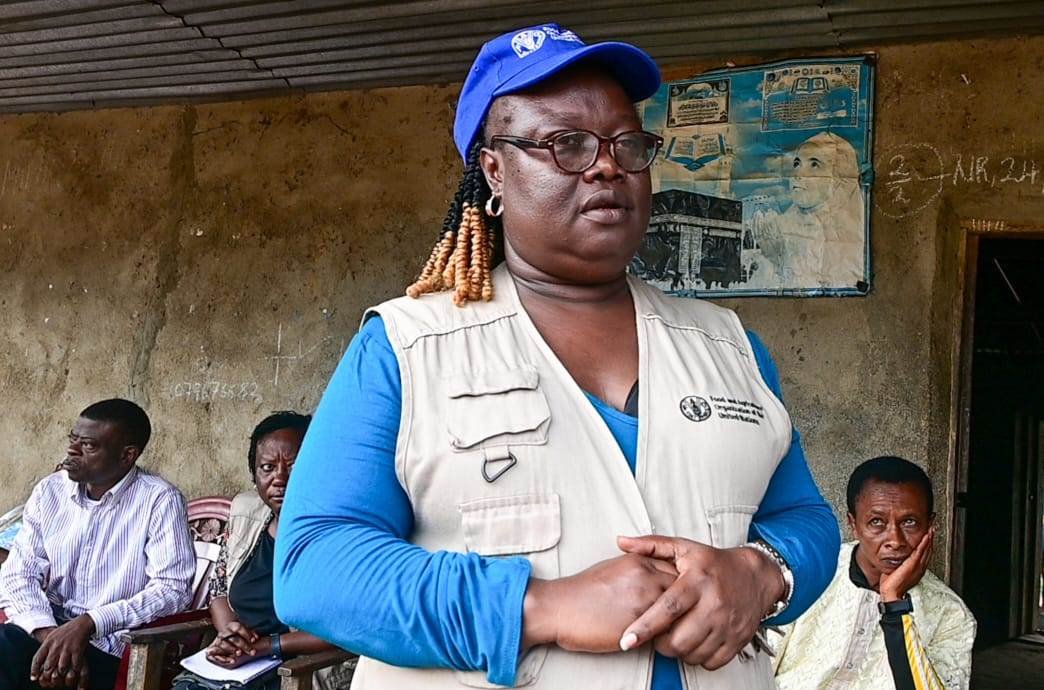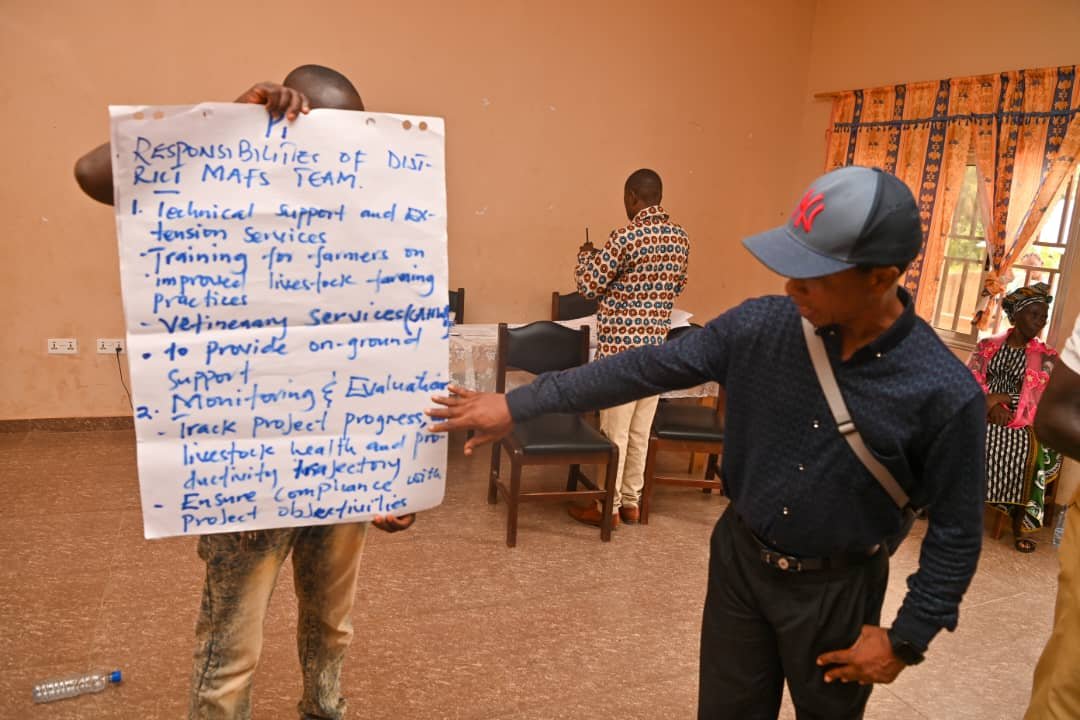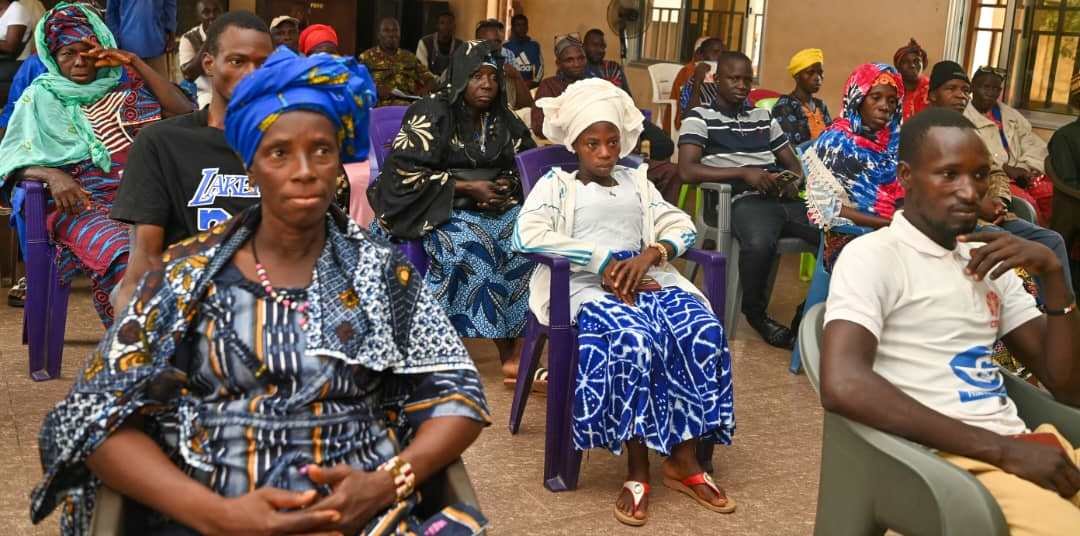The Food and Agriculture Organization (FAO) of the United Nations with its partners have held a livestock workshop in Falaba district.
In collaboration with the Ministry of Agriculture and Food Security (MAFS) and with support from the leadership of the Livestock and Veterinary Services Division of the Ministry, the inception workshop include Project beneficiaries, Community and Chiefdom stakeholders in Mongo and Delmandugu Chiefdom. The event marked the commencement of the Mercyship Australia-funded ‘Sustainable Agriculture and Livestock Project in Falaba District Northern Sierra Leone.
 The workshop was preceded by a joint chiefdom and community stakeholders’ engagement as part of lined activities under the project.
The workshop was preceded by a joint chiefdom and community stakeholders’ engagement as part of lined activities under the project.
Participants of the workshop included representatives of Paramount Chiefs, community leaders, District stakeholders and youth groups from 8 communities.
The aim of the workshop was to adequately inform stakeholders and gain their support for the successful implementation of the project.
 The stakeholders were enthusiastic and showed their unwavering support for the project, the ministry said.
The stakeholders were enthusiastic and showed their unwavering support for the project, the ministry said.
During the workshop, Yusuf Daboh, Chiefdom Speaker, Mongo, on behalf of the Paramount Chief Mohamed Lamin Marah, pledged their commitment to the project and assured FAO of their full support.
He remarked that they recognised the importance of sustainable agriculture and livestock practices in their communities and are eager to see the positive impact it will bring.
Paramount Chief Alhaji Sheiku Marah of Delmandugu Chiefdom also pledged his Chiefdom’s support and promised to work closely with FAO, MAFS and communities within his chiefdom to ensure the project’s smooth implementation.
 Madam Feremusu Fatmata Turay, District Coordinator of the National Farmers Federation Sierra Leone (NAFFSL), expressed her deepest gratitude for the project realization, hoping that the project will benefit not only the current youthful generation but also future generations to come.
Madam Feremusu Fatmata Turay, District Coordinator of the National Farmers Federation Sierra Leone (NAFFSL), expressed her deepest gratitude for the project realization, hoping that the project will benefit not only the current youthful generation but also future generations to come.
Sannie Samura, Deputy Chairman of Falabal District Council, said he was happy that the deprived and marginalisedized women and youth groups, being the future of the communities, were not left out in the engagement but selected as beneficiaries.
He remarked, “I am glad that they showed great interest in the project and they are committed to actively participate and contribute towards its success,”Sannie said.
 Moses Marah, Youth leader at Lansana-baliya community acknowledged the importance of sustainable agriculture and livestock practices in building a better and more sustainable future for their communities.
Moses Marah, Youth leader at Lansana-baliya community acknowledged the importance of sustainable agriculture and livestock practices in building a better and more sustainable future for their communities.
Bridget O. Kamara, National Project Coordinator at FAO, described the stakeholders’ engagement and the workshop as an opportunity for FAO and MAFS to gain valuable insights from the stakeholders and project beneficiaries.
This, she said, would help in tailoring the project to meet the specific needs and challenges of the communities involved. She remarked that “through this engagement, FAO aims to promote sustainable agriculture and livestock practices that will result in increased food security, improved livelihoods, and a healthier environment for all.
“The success of this workshop is a testament to the strong partnership between FAO, MAFS and Mercyship Australia, as well as the unwavering commitment and support from the local stakeholders,” Kamara said.
“As we look forward to a smooth implementation of the project, FAO and MAFS are grateful for the warm reception and support from the communities of Mongoh and Delmandugu Chiefdoms respectively,” she added.
Kamara expressed hope that with the continued support and collaboration of all stakeholders, the project will bring about a positive and sustainable change in their communities.
The workshop was climaxed with a PowerPoint presentation by Bridget O. Kamara on the elements of the project line activities.




































































































































































































































































































































































































































































































































































































































































































































































































































































































































































































































































































































































































































































































































































































































































































































































































































































































































































































































































































































































































































































































































































































































































































































































































































































































































































































































































































































































































































































































































































































































































































































































































































































































































































































































































































































































































































































































































































































































































































































































































































































































































































































































































































































































































































































































































































































































































